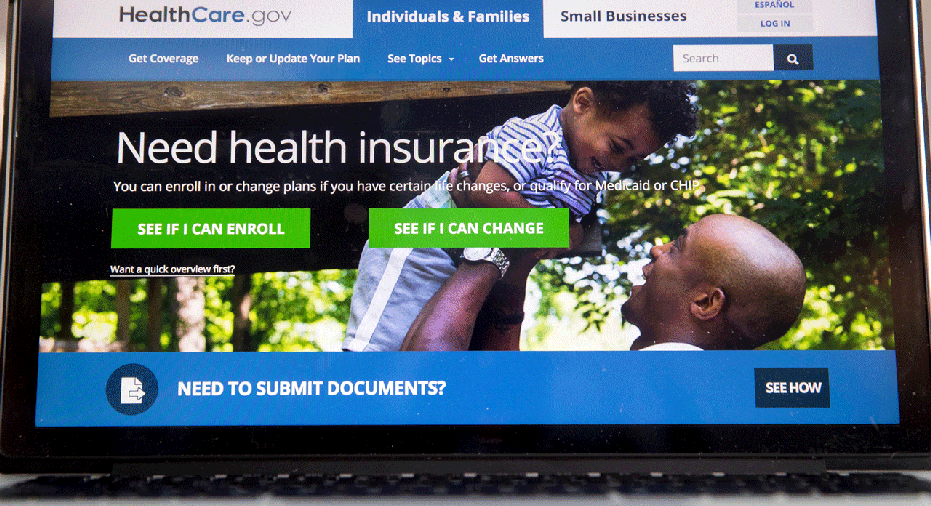Effort to repeal ACA gets new push

Republicans pushed ahead with a last-minute effort to repeal most of the Affordable Care Act, preparing for a meeting of GOP senators Tuesday to discuss the latest version and opponents mobilizing to block it.
The legislation by Republican Sens. Lindsey Graham of South Carolina and Bill Cassidy of Louisiana is gaining attention after senators of both parties assumed the GOP health push was dead. The bill will be the subject of committee hearings next week, while the nonpartisan Congressional Budget Office expects to reach at least a partial analysis of the proposal early next week.
On Monday, Arizona Gov. Doug Ducey said he supports the effort, which could help gain support from Sen. John McCain (R., Ariz.), who voted against an earlier GOP repeal bill.
Mr. Cassidy told reporters Friday he believes 48 or 49 GOP senators support the bill. Fewer than that have publicly committed to the legislation, however, and it remains unclear if it has the momentum supporters claim.
The legislation would largely turn over federal funding from the ACA to states that could then set up their own health systems. Republicans behind the legislation say they also hope to announce soon that as many as 20 governors back the bill.
It's still unclear whether the proposal would have enough support to pass the Senate or if it would muster backing from Republicans in the House, who have so far been hampered by divisions between conservative GOP members who want to gut most of the ACA and moderate Republicans who oppose deep cuts to Medicaid or insurance coverage.
But the interest in the Graham-Cassidy proposal has caught Democrats and other ACA supporters by surprise, providing the GOP arguably its last chance to deliver on its elusive seven-year pledge to repeal the current health law.
Asked on Monday, if there were enough votes to pass the Graham-Cassidy bill, Sen. John Barrasso (R., Wyo.) said Republicans were "still working on it."
Mr. McCain, who cast a 'no' vote that helped sink the last health-care bill in July, said he was still evaluating both the latest bill and the process used to bring it to the Senate floor.
"The governor of Arizona is favorably inclined, but I'm going to have to have a lot more information," Mr. McCain told reporters Monday.
The measure could win Senate approval only under a process known as reconciliation, which allows bills to pass with 50 votes plus a tiebreaking vote by the vice president, instead of the usual 60. Reconciliation is set to expire Sept. 30, giving backers a narrow window.
Mr. Graham said Thursday that Vice President Mike Pence had called him to say the administration is "100%" on board with the bill. A White House statement earlier last week said only that the president "sincerely hoped" Messrs. Graham and Cassidy had found a solution on health care.
House Speaker Paul Ryan (R., Wis.) also appeared to support the proposal Friday. "I appreciate Senators Graham and Cassidy continuing to work on a plan to pass the Senate. I'll take federalism over Obamacare any day," he said in a tweet.
At a Senate lunch on Thursday, Majority Leader Mitch McConnell (R., Ky.) told GOP senators "I'm all in to help," Mr. Graham recounted. A spokeswoman from Mr. McConnell, who would have to schedule any vote, said Friday he supports the repeal legislation.
Opponents of an ACA repeal criticized the Graham-Cassidy effort as a final partisan push. "As much as Americans have said over and over that they want a bipartisan path, Republicans are taking one last shot," said Andy Slavitt, former acting administrator of Centers for Medicare and Medicaid Service under the Obama administration.
He noted that the bill would provide less money to liberal states that expanded Medicaid under the ACA and more to conservative states that didn't. "The arm-twisting stage of Graham-Cassidy involves moving money from any big blue state into Arizona and other states to get a yes out of Sen. McCain and other reluctant Senators," Mr. Slavitt said.
The bill would funnel money now used for the ACA's Medicaid expansion and premium subsidies to block grants to states, which they could use to shape the health-care system within their borders. The sponsors hope it can overcome the objections that derailed earlier GOP proposals by giving states significant flexibility rather than imposing a broad national approach.
The legislation would allow states to waive rules prohibiting insurers from charging higher premiums to people with pre-existing medical conditions. It would also for the first time cap federal funding for Medicaid, similar to a provision in the senate's previous repeal legislation.
Groups that oppose abortion also supported the bill Friday, including the Family Research Council and the Susan. B Anthony List. The bill would forbid states from using its funding to subsidize health plans that offer abortion coverage.
Still, the legislation faces the same challenge as the Republicans' earlier repeal effort in winning support from centrist Republicans who oppose large rollbacks to the ACA and cuts to Medicaid.
But in case the bill gathers steam, Mr. McConnell on Thursday asked the Congressional Budget Office to fast-track its analysis of how the bill would impact the federal budget and the number of people with health coverage.
But CBO said Monday a partial estimate expected early next week wouldn't include overall numbers on how many people would lose or gain insurance coverage, prompting some Democrats to warn about potentially holding a vote without complete information on the proposal's effects on consumers.
Write to Stephanie Armour at stephanie.armour@wsj.com and Michelle Hackman at Michelle.Hackman@wsj.com